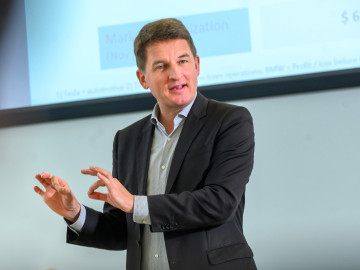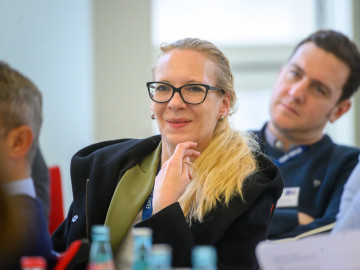At ESMT Berlin, we offer a diverse range of executive education programs designed to elevate your professional skills, prepare you for future leadership roles, and expand your network. As Germany's top business school, our programs combine cutting-edge insights with real-world challenges, empowering you to make a tangible impact in your organization.
Whether you're seeking to sharpen specific management or leadership skills, or acquire new tools to transform your business, our programs are crafted to deliver immediate, practical value.
- Tailored learning: Choose from a spectrum of courses designed to enhance leadership and management skills, selecting the ones most relevant to you.
- Practical impact: Gain the latest thinking paired with actionable strategies and solutions for real business challenges.
- Network enhancement: Grow your professional circle through collaborative group work and peer interactions.
- Peer-to-peer learning: Learn, collaborate, and exchange ideas with like-minded professionals, enriching your experience.
Advance your career with programs in leadership, AI, innovation, and more
Leadership and change
Analytics and AI
General management and corporate governance
Strategy
Innovation and digital transformation
Finance
Negotiation
Explore our portfolio of programs for individuals
Earn a credential that celebrates your growth
Take your professional development to the next level and combine multiple programs to create a personalized learning path that results in the ESMT Postgraduate Diploma in Management.
This university-level certificate represents a formal recognition of your professional development. Find out how you build your own learning journey to management excellence.
General terms and conditions
Our general terms and conditions for programs for individuals and information about application and cancellation policy can be found here.

Customized solutions for organizations
We provide your company with effective measures to transform corporate culture as well as business processes.
Need more information?
Contact our program advisors:
- Fill out our Request Information form
- Phone: +49 30 21231 1490
- Email: bd@esmt.org



















